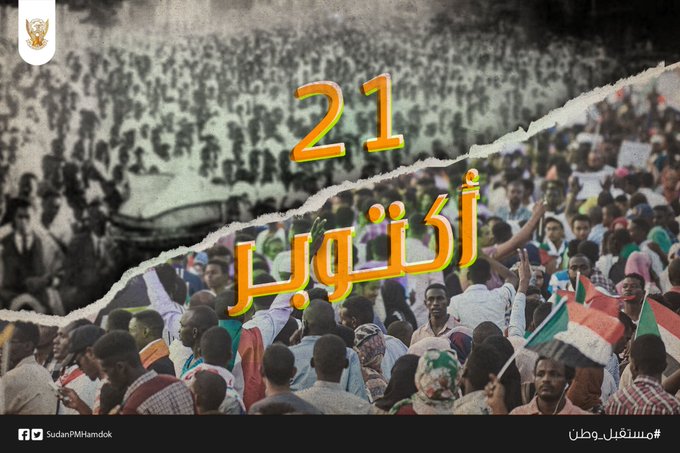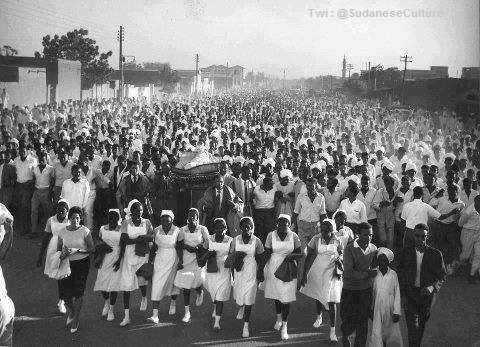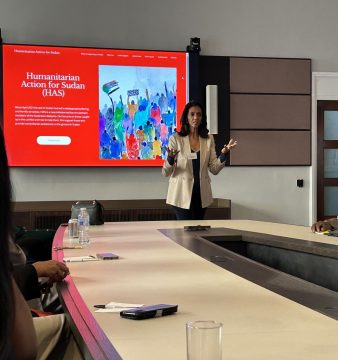21 October: Why It’s A Significant Date for Sudan

On 21 October 2021, hundreds of thousands of protesters took to the streets in a ‘Million March’ across Sudan to demonstrate their support for a civilian rule and objecting to a military rule.
This was in response to pro-military protests which took place the following week, holding a sit-in outside the presidential palace.
In addition, protesters chanted in support of Prime Minister Abdalla Hamdok, and chanted against military leaders, including Chairman of the Sovereignty Council of Sudan, General Abdel Fattah Abdelrahman Al Burhan and Deputy Chairman General Mohamed Hamdan Dagalo (Hemedti).
The protest is believed to be the largest protest since the revolution, which broke out in December 2018 and led to the fall of former Sudanese President Omar Al Bashir in April 2019.
Since the fall of Al Bashir, Sudan has been led by transitional Sovereign Council, comprising of 11 members: five civilians, led by Hamdok, and five military representatives, led by Al Burhan. Under Article 10 (b) of the Draft Constitutional Declaration, the council will rule by rotation for 39 months starting 20 August 2019 until November 2022.
History of the October Revolution

21 October was the chosen date for the ‘Million March’ in commemoration of 21 October 1964 when a revolution broke out that overthrew the regime of the late Sudanese President Lieutenant General Ibrahim Abboud. The Abboud regime was followed by a provisional government until parliamentary elections in April 1965 led to a coalition government under Prime Minister Mohamed Ahmed Mahjoub.
عاشت ذكرى أكتوبر المجيدة ملهمة للأجيال، ومذكِّرة لهم جيلاً بعد جيل، بما خرج من أجله الشهداء ورفاقهم الثوار، في كل ثورة في بلادنا.
— Abdalla Hamdok (@SudanPMHamdok) October 20, 2021
كل أكتوبر ونحن أكثر تمسكاً بالسلمية والديمقراطية والحرية والسلام والعدالة.#أكتوبر21#مستقبل_وطن pic.twitter.com/KhVtrbObOz
This years marks the 56th anniversary of the October Revolution. According to Hamdok, the October Revolution in 1964 is considered a qualitative starting point in the field of the Sudanese popular revolutions.
In October 1964, an issue called the ‘Southern Problem’ had formed in Sudan. It was a dispute between the North and the South. Abboud led a military government for six years in which his military regime voiced confusion over the Southern Problem, and permitted public discussion on the problem at the University of Khartoum.
On 21 October, the University Students’ Union held a meeting to discuss the Southern Problem. The students expressed hostility against the regime and concluded that the problem would never be resolved so long as the military regime continued to hold power. The government of Sudan responded by banning meetings and discussions on the Southern Problem and establishing a curfew. However, the University Students’ Union defied the ban, stayed out past the curfew, and held another meeting at the University of Khartoum. The police arrived and attempted to disperse the meeting, throwing tear gas and opening fire. Several students were wounded and one student, Ahmad Al Qurashi, was killed.
This sparked outrage and on 22 October, a mass demonstration took form as a funeral for Al Qurashi with more than 30,000 people. This was followed by several protests and strikes throughout the following days.
On 27 October, negotiations began between the United National Front (UNF) and representatives of the armed forces. Abboud stated that a transitional government would be formed pending the adoption of a new constitution, and UNF agreed. However, Abboud then declared his intention of assembling the Central Council and forming a new Supreme Council of the Armed Forces at a press conference. This declaration led the UNF to call for the protests and strikes to continue.
On 30 October, the campaign and strikes ended with the establishment of the transitional government. Abboud still remained the head of state, but resigned due to pressure on 15 November.
The transitional government was then formed established lifting the state of emergency, reinstated freedom of the press, and repealed the restriction of certain fundamental rights in the penal code. The transitional government also addressed the Southern Problem by granting amnesty to Southerners who had carried arms, released political detainees in the South, and more.
Related post:




